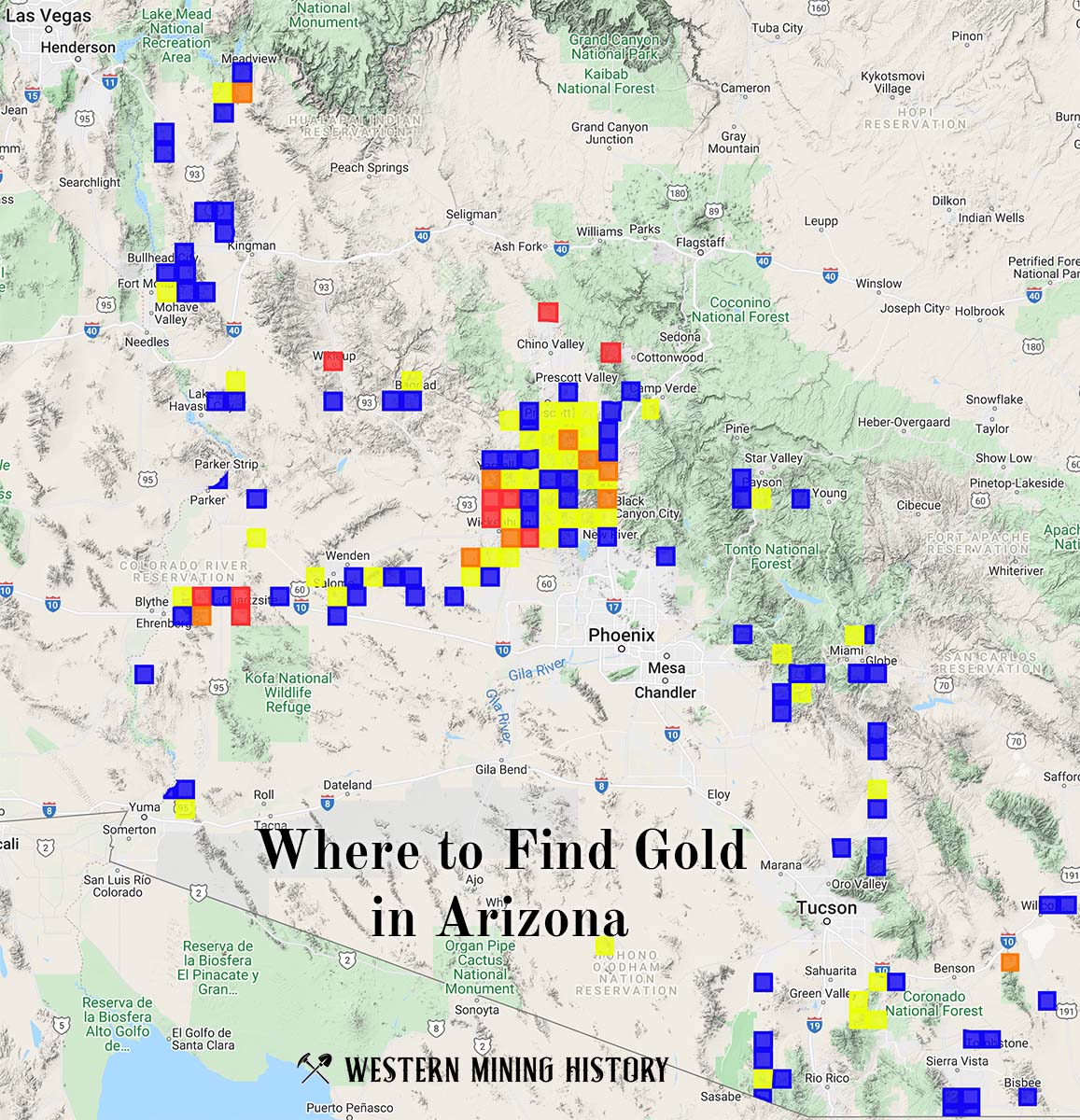The Kitty Why Mine is a gold mine located in Pinal county, Arizona at an elevation of 2,598 feet.
About the MRDS Data:
All mine locations were obtained from the USGS Mineral Resources Data System. The locations and other information in this database have not been verified for accuracy. It should be assumed that all mines are on private property.
Mine Info
Elevation: 2,598 Feet (792 Meters)
Commodity: Gold
Lat, Long: 33.18778, -111.19167
Map: View on Google Maps
Kitty Why Mine MRDS details
Site Name
Primary: Kitty Why Mine
Secondary: Herring Property
Secondary: Herron Group
Secondary: Horace Group
Commodity
Primary: Gold
Secondary: Silver
Secondary: Copper
Location
State: Arizona
County: Pinal
District: Mineral Hill District
Land Status
Land ownership: BLM Administrative Area
Note: the land ownership field only identifies whether the area the mine is in is generally on public lands like Forest Service or BLM land, or if it is in an area that is generally private property. It does not definitively identify property status, nor does it indicate claim status or whether an area is open to prospecting. Always respect private property.
Holdings
Not available
Workings
Type: Surface/Underground
Ownership
Owner Name: Francis Josyshon , C. L. Brainard
Years: 1948 -
Owner Name: L. A. Herring Until 1950
Production
Not available
Deposit
Record Type: Site
Operation Category: Producer
Operation Type: Unknown
Discovery Year: 1887
Discovery Method: Ore-Mineral In Place
Years of Production:
Organization:
Significant: N
Deposit Size: S
Physiography
General Physiographic Area: Intermontane Plateaus
Physiographic Province: Basin And Range Province
Physiographic Section: Sonoran Desert
Mineral Deposit Model
Not available
Orebody
Form: TABULAR
Structure
Type: R
Description: Nw Trending Faults And Fissures
Type: L
Description: W-Dipping Thrist Fault Through Mine
Alterations
Not available
Rocks
Name: Schist
Role: Host
Age Type: Host Rock Unit
Age Young: Neoproterozoic
Name: Schist
Role: Host
Age Type: Host Rock
Age Young: Neoproterozoic
Analytical Data
Not available
Materials
Not available
Comments
Comment (Deposit): Discovery Year: LATE 1880'S
Comment (Location): AT THE HEAD OF BOX CANYON ; INFO FROM LAND.ST :(1978)
Comment (Production): USBM-ABGMT FILE DATA LISTS PRODUCTION DATA UNDER HERRING MINE (1948), AND KITTY WHY GROUP (1941). THE USBM MINERALS YEARBOOK REVIEW OF 1940 STATES: "THERE WAS SUBSTANTIAL GAIN IN PRODUCTION OF GOLD IN THE MINERAL HILL DISTRICT DUE TO INCREASED OUTPUT OF GOLD ORE FROM THE SUNSET AND HORACE PROPERTIES".
Comment (Workings): VARIOUS OPEN CUTS
Comment (Geology): MINERALIZATION ASSOCIATED WITH TERTIARY INTRUSION AND VOLCANISM. TERTIARY RHYOLITE 1 MILE SE OF MINE
References
Reference (Deposit): USBM-ABGMT PRODUCTION DATA FILE
Reference (Deposit): ARIZONA DEPARTMENT OF MINERAL RESOURCES FILE DATA,-KITTY WHY
Reference (Deposit): USBM FILE DATA-CLUSTER #776
Reference (Deposit): ABGMT CLIPPINGS FILE DATA
Reference (Deposit): USBM, MINERALS YEARBOOK REVIEW OF 1940, KEISER, H.D., EDITOR, 1941,P. 210
Reference (Deposit): USGS OPEN FILE REPORT 78-468, 1978
Arizona Gold

"Where to Find Gold in Arizona" looks at the density of modern placer mining claims along with historical gold mining locations and mining district descriptions to determine areas of high gold discovery potential in Arizona. Read more: Where to Find Gold in Arizona.